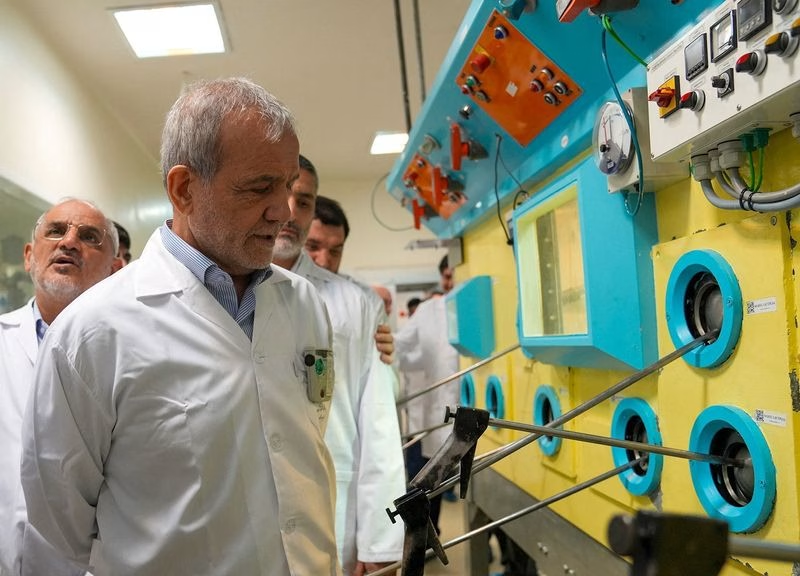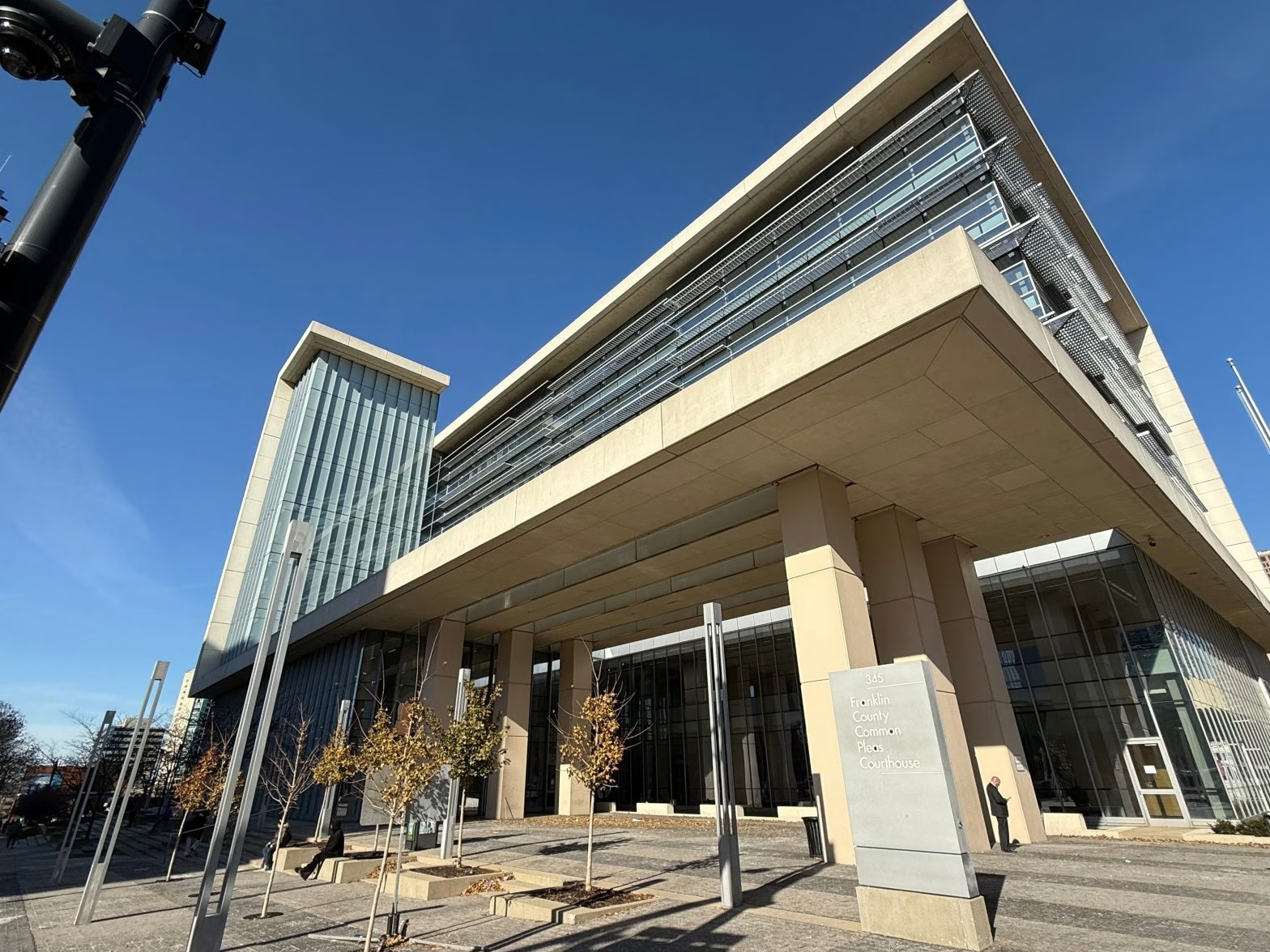Iran’s President Vows to Rebuild Nuclear Facilities
DUBAI (Bisakimia) – The Iranian President, Masoud Pezeshkian, has declared that Tehran will reconstruct its nuclear facilities “with greater strength,” as reported by state media on Sunday. He emphasized that Iran does not aim to develop a nuclear weapon.
U.S. President Donald Trump previously warned that he would authorize new attacks on Iran’s nuclear sites if the country attempts to resume operations at facilities that the United States bombed in June.

Pezeshkian made these statements during a visit to the country’s Atomic Energy Organization, where he met with senior officials from Iran’s nuclear industry.
“Destroying buildings and factories will not create a problem for us; we will rebuild and with greater strength,” the Iranian president stated to state media.
In June, the U.S. conducted strikes on Iranian nuclear facilities, which Washington claims were part of a program focused on developing nuclear weapons. However, Tehran insists that its nuclear program is solely for civilian purposes.

“It’s all intended for solving the problems of the people, for disease, for the health of the people,” Pezeshkian said regarding Iran’s nuclear activities.
(Reporting by Parisa Hafezi and Elwely Elwelly; Editing by Hugh Lawson and Sharon Singleton)
Background on Iran’s Nuclear Program
Iran’s nuclear program has been a subject of international concern for decades. The country has long maintained that its nuclear activities are for peaceful purposes, such as generating electricity and advancing medical research. However, the international community, particularly the United States, has expressed skepticism about Iran’s intentions, citing its history of non-compliance with international agreements and its development of advanced centrifuge technology.
The Joint Comprehensive Plan of Action (JCPOA), commonly known as the Iran nuclear deal, was signed in 2015 between Iran and six world powers. This agreement aimed to limit Iran’s nuclear program in exchange for the lifting of economic sanctions. However, the U.S. withdrew from the deal in 2018, leading to a resurgence of tensions and the reimposition of sanctions.
Recent Developments
In recent months, there have been increased reports of Iran expanding its nuclear capabilities, including the enrichment of uranium to higher levels than permitted under the JCPOA. These developments have raised concerns among Western nations and their allies, who fear that Iran may be moving closer to developing a nuclear weapon.
The U.S. has taken a firm stance against any actions that could threaten regional stability. President Trump’s comments about potential military action against Iran’s nuclear facilities reflect this approach. However, other U.S. officials have urged caution, emphasizing the importance of diplomatic solutions to avoid further escalation.
Implications for Regional Security
The situation in the Middle East remains volatile, with multiple actors involved in the ongoing conflict. Iran’s nuclear program is a key factor in this complex web of alliances and rivalries. The country’s relationships with regional allies, such as Hezbollah in Lebanon and various groups in Iraq, add another layer of complexity to the security landscape.
The potential for conflict between Iran and the U.S., or between Iran and its regional adversaries, remains a significant concern. Military confrontations could lead to widespread instability, affecting not only the region but also global energy markets and international trade routes.
International Response
The international community has called for dialogue and diplomacy to address the growing tensions. The United Nations has repeatedly urged all parties to exercise restraint and engage in constructive negotiations. Several countries have also expressed support for a return to the JCPOA, highlighting the importance of a comprehensive and verifiable agreement.
However, achieving consensus on a new agreement remains challenging, given the differing priorities and interests of the involved parties. The U.S. and Iran have yet to find common ground on key issues, including the scope of Iran’s nuclear program and the conditions for lifting sanctions.
Future Outlook
As the situation continues to evolve, the role of international diplomacy will be crucial in preventing further escalation. The coming months will likely see increased scrutiny of Iran’s nuclear activities, as well as efforts to strengthen existing security measures in the region.
The outcome of these developments will have far-reaching implications for global security and the stability of the Middle East. Whether through diplomatic engagement or military action, the path forward remains uncertain, and the stakes are high for all involved.
- 5 famous toothpastes recalled or ditched for unsafe ingredients - December 16, 2025
- Dokter Richard Lee Kecewa Inara Rusli Nikahi Pria Beristri - December 16, 2025
- 510 Siswa Ikut Festival Bulutangkis Semarang 2025, Cetak Talent Baru - December 16, 2025




Leave a Reply